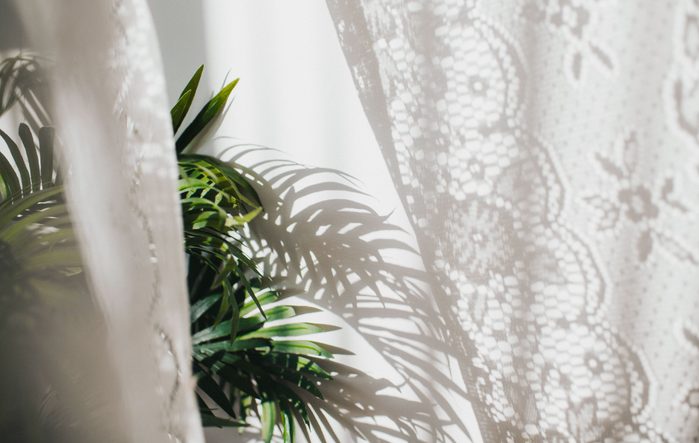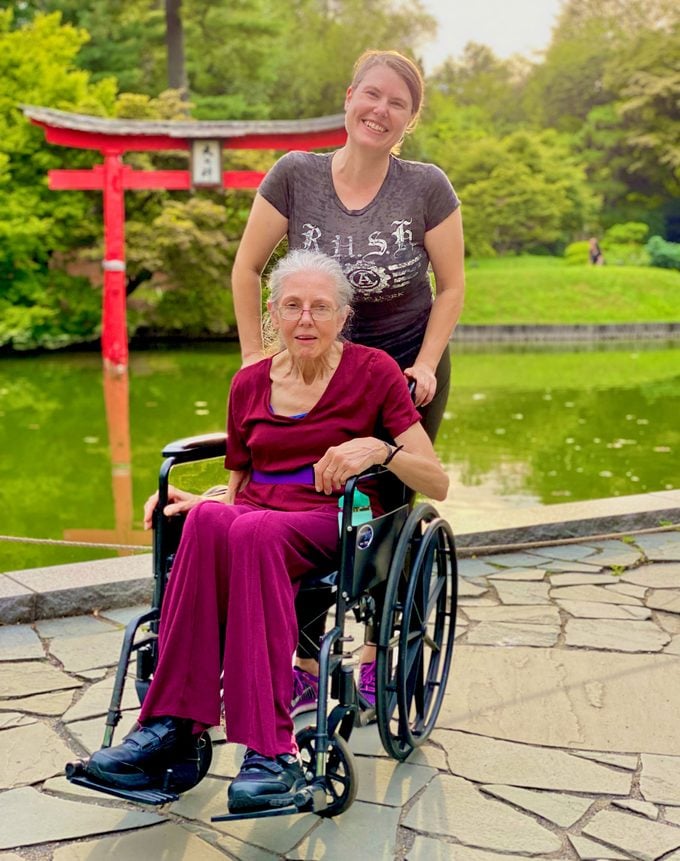Caring for My Mother’s Plants Is Helping Prepare Me for a Life Without Her
Updated: Oct. 27, 2022

Sometimes I hate caring for my mother's plants, but I know they'll be a source of comfort in the future
In the summer of 1990, when I was 8, my family of five moved into our brand-new home. My mother and father had designed it according to their own particular needs and interests, including extra-high counters to accommodate their heights, built-in bookshelves to house their hundreds of books and a large, bright sunroom to shelter and nourish all the plants my garden-loving father planned to grow. A few months later, my father suddenly died of a heart attack while driving a forklift at his job. He was 39.
My mother, who never had much of a green thumb and didn’t know better, filled our sunroom with low-light plants like ferns, which consistently burned. She experimented over the years, filling the house with low-maintenance and air-purifying plants like spider plants and indoor hanging plants, which hung from the baker’s rack and highchair in the kitchen. She never took any proper gardening classes, but through trial and error (and by reading a handful of articles in the “women’s” magazines that were so iconic in the 1990s) she eventually got better.
She never specifically said she wanted to become a better gardener as a way to keep my dad’s memory alive, but I know she thought a lot about what he would have been growing in the sunroom had he not died so suddenly. The only reason we had a sunroom, after all, was so that he could garden, and I know it pleased her that at least part of the room always had plants growing in it.
When my mother began developing the first few symptoms of Parkinson’s about a decade ago, she continued to garden. She took pride in trimming trees and planting bulbs outside and pruning the leaves off plants indoors. Considering that Parkinson’s was slowly robbing her of the ability to do so many of the activities she loved most, like singing and playing the piano (she and my father were both musicians and met in music school), I know she felt tremendously proud and grateful to still be able to handle some more basic gardening tasks.

My turn to develop a green thumb
Then, last year, when Mom was hospitalized after a series of falls that landed her in rehab for a month, there was nobody home to care for her plants, and they all began to die. My sister, her family and I decided to move in to help care for Mom once she got out of rehab. My sister and I slowly began trying to nurse her plants back to life.
As we are thoroughly consumed with caring for our mother while raising kids and working full-time jobs, even the low-maintenance plants don’t always get enough attention. I often get frustrated by having to run all over the house—and the back patio, and the porch—to water the plants, clip the leaves, repot them or add more soil when the roots begin to show. I find myself cursing at my mother’s enormous ferns—now at home in a more appropriate shady spot—which are constantly shedding and leaving behind a huge pile of crispy, brown, dead leaves for me to clean up on top of the 15 other messes I already have to attend to.
Sometimes, I hate her plants. Other times, I remember why I care for them. Sure, my mother loves her plants, but she is rarely in the sunroom to enjoy them; I care for her plants because I view them as a future source of comfort. Caring for my mother’s plants feels like nurturing what will soon serve as her memory. I’m acutely aware of how significantly her health has declined over the past two years, and I know that she may not be with us much longer. By nourishing her plants, I hope to create a living memory of her that will stay with me long after she passes. Perhaps then I’ll finally stop cursing the ferns.
